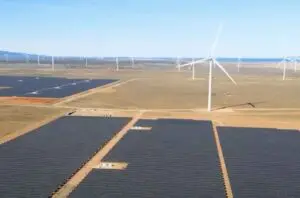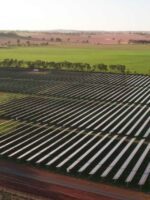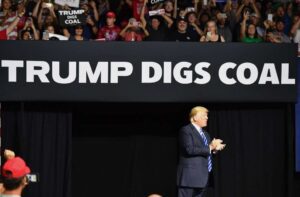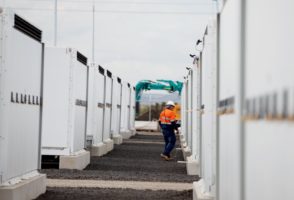The Abbott government keeps on talking about the need to reduce electricity costs, and take advantage of Australia’s “natural” energy assets.
That’s great, but there is one major problem. Australia’s natural assets – at least the fossil fuel ones – no longer work best in the ways they once did. And the electricity grid, once a paragon of energy market virtue – albeit a heavily subsidised one – is pricing itself out of the market.
So perhaps it’s time for a comprehensive reassessment of what works, and where. And on this, Australia may have a lot to learn from Saudi Arabia and other oil and gas nations in the Gulf region.

The Saudis have realised that fossil fuels can get the best price in the export market, and that is where they should be sold – as long as customers want or can afford them. Renewable energy sources such as wind and solar should form the basis of domestic consumption.
Saudi Arabia is about to become the largest investor in solar technology because it can no longer afford to consume fossil fuels at home, and because it is foregoing a massive windfall if it continues to do so. This has little to do with climate change and is all about economics. The Saudis are committing more than $40 billion to solar, and are looking at a $7 billion investment in a solar PV manufacturing facility. Qatar, and more recently Iran, are looking at similar strategies.
Ironically, Australia finds itself in the same boat. Its domestic coal prices have long been isolated from the export market because of long term government contracts. But a massive gas export boom is about to put gas prices into the stratosphere, to a point where domestic customers can no longer afford them. So if the Saudis can come to the conclusion that they cannot afford to burn their own fossil fuels for domestic consumption, why can’t Australia.
Australia, after all, has all the ingredients. Large fossil fuel resources, excellent renewable resources and high electricity prices. It is often forgotten that between them, the states of Queensland and Western Australia spend more than $1 billion subsidising the cost of electricity to consumers. That averages out at more than $600 per household. These subsidies pre-date and will outlive the carbon price and green schemes.
In some quarters, businesses are already coming to the conclusion that exports are better than domestic consumption.
One state-owned gas generator, the Queensland based Swanbank, has already been put in mothballs so the gas can be sold to the export market. Indeed, the only profit that Swanbank owner Stanwell Corp made last year was when it closed half the capacity of the Tarong coal fired generator and decided to sell its coal into the export market as well.
The irony of it all? Well, you’d think that the Stanwell board might put two and two together and encourage the deployment of solar so it could sell more of these fossil fuels. But no, it rants and rails and pines for the past and wants solar stopped in its tracks. Other utilities are taking a similar stance.
The Abbott government, meanwhile, insists it can deliver cheaper electricity prices, mostly by repealing the carbon price and even canning the renewable energy target. But these are actually minor costs and Abbott’s claims are mostly a mirage.
Short of writing down the value of networks, there is really nothing that the government could do to reduce the cost of electricity under the current arrangements. There has simply been too much over investment and gold plating. The grid has become so expensive that remote cattle properties can use diesel generators to supply their own needs at the same price as a family in suburban Sydney. Even Ergon Energy has conceded that its customers might be better off going off-grid with renewables and batteries than stay connected.
Households are figuring this out all by themselves, embracing rooftop solar even without feed in tariffs because they can see where electricity prices are going, and they don’t trust the utilities.
As the solar industry points out, distributed energy such as solar PV provides competitive pressure to network investment and fossil fuel electricity generation. But solar can, and will, also play an increasingly important role in protecting customers against future rises in both fuel costs and network upgrades.
It will also require a new way of operating energy markets. The current one was created to satisfy the needs of the technology that existed decades ago, but is fast becoming redundant. And so far, the approach of the Abbott government has been merely to seek out how to defend the incumbent interests.
That much was made clear by the framing of its terms of reference for both the energy white paper and the renewable energy target. The RET panelists are all executives “of a certain age” who have spent their careers defending the companies they represent against change and appear to have no understanding whatsoever about the impact of new technologies and the need for new business models.
Pitching renewables as an environmental benefit won’t win much cachet in a government that – within its core policy making – believes climate change is something that happens when the sun goes behind a cloud. But it might just get traction if it is pitched as an economic imperative, and the noise of the incumbents can be overcome.
As Alan Pears, from RMIT University, notes in his submission to the energy white paper, the present model is failing in important ways. Instead of opening up markets to new technologies and business models, incumbents are using their market power to block and delay change. EnergyAustralia’s latest blackout threat, that too much excess capacity will mean not enough capacity when it’s needed, is a case in point. And the incumbents are being assisted in this by policy makers.
“Energy businesses (and state governments) that have exploited poor market design to capture additional revenue must not be rewarded for their past efforts: they must take responsibility for their poor decisions,” Pears notes. He argues that the grid needs to focus more on demand side initiatives than supply. In effect, it is a similar argument to that adopted by the Saudis – simply consuming more fossil fuels is not the answer. Smarter solutions must be found.
Adopting renewable energy also means new ways of thinking about markets. Pears also wants energy consumers allowed to use the electricity they generate from their own solar panels to sell to neighbours across property boundaries, so that they can ‘test the market’ in comparison to the charges that network operators propose. But he says the network operators seem to have convinced policy makers that they should be paid enough to recover costs associated for “paying excessive prices for assets as well as high rates of profit.” He says it was about time they – and not the consumers – were made accountable for their investment decisions.
By addressing the domestic supply situation, through smarter business models, reform and greater focus on renewables, then Australia can address the broader issue about energy exports.
As Pears notes, the LNG boom has reached a point where the industry is effectively “holding the Australian community to ransom” by trying to accelerate large scale CSG production without due consideration of environmental and social impacts.
So maybe it should be left to the export market. Environmentalists and the Greens may object to a focus on the export markets, but the fact is that Australian fossil fuel exports will not be influenced by the domestic energy mix.
The future of exports will be determined by such swing factors as China’s efforts to when itself coal, and India’s discovery that domestic solar is a much cheaper and effective solution than importing coal, and the preparedness of financiers to back those projects.
Australia’s federal and state governments are doing the best to wave through the developments, but the fate of these projects lie with the banks. And they are being warned repeatedly about the risks – not just by environmental NGOs, but by mainstream analysts, such as those at UBS, Goldman Sachs, Citigroup, Deutsche Bank and HSBC.
.








